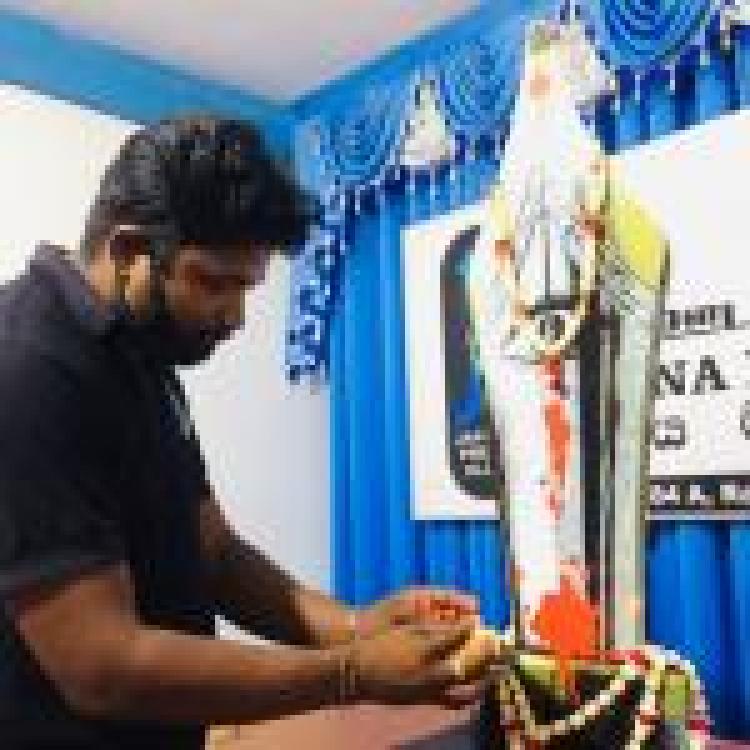.jpg)
Jaffna Press Club called on Sri Lanka's authorities to "stop the war on journalists" in a protest to mark World Press Freedom Day.
The Tamil journalists chanted outside their office in Jaffna, demanding justice for the killings and disappearances of fellow Tamil journalists and media workers. They also expressed the need for thorough investigations into attacks targeting media establishments and for Sri Lanka to stop all forms of intimidation, harassment, and surveillance of journalists in the North-East.
.jpg)
The journalists held photos of Tamil journalists, Mylvaganam Nimalarajan, Aiyathurai Nadesan and Dharmeratnam 'Taraki' Sivaram - just some of the Tamil journalists that have been murdered.
.jpg)
Nimalarajan, a senior journalist who contributed to the BBC Tamil and Sinhala services, the Tamil daily Virakesari and Sinhala weekly Ravaya, was murdered in his Jaffna home on October 19th 2000.
.jpg)
Nadesan was shot dead in Batticaloa by a paramilitary group when he was on his way to his office in 2004. Nadesan was a profile journalist and a columist for local Tamil dailies and international news agencies.
In the months leading up to his killing, Nadesan had been threatened and harassed by military personnel. On June 7 2001, he was summoned by the army for an inquiry where he was warned to cease reporting on human rights abuses.
Sivaram, a renowned journalist and editor of TamilNet, was abducted in front of Bambalipitiya police station in Colombo on April 28 2005, and was found dead several hours later in a high security zone in Colombo, which at the time had a heavy police and military presence due to the ongoing conflict. His killers, highly suspected to be linked to the government of then-president Chandrika Kumaratunga, were never caught.
Tamil journalists face routine harassment and reprisals for reporting on issues faced by Tamils in the North-East. They have frequently found themselves targeted with surveillance, threats, acts of violence, and even death. According to Together Against Genocide, from 2004 to 2009, over 48 journalists and media workers were reported killed, 41 of whom were Tamil.

